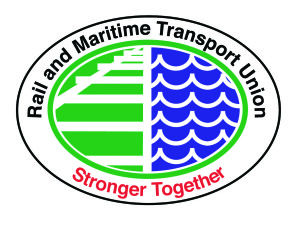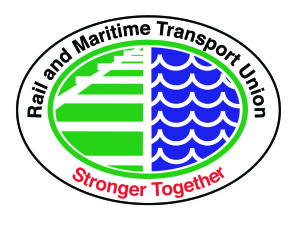Government procurement policy needs to be much more than just giving firms a “fair shake of the stick” as Steve Joyce put it this morning, the union for rail workers said.
This morning Steven Joyce commented on proposed changes to government procurement policy, including requirements that New Zealand firms are consulted before tender documents are prepared, and government taking a ‘whole of life’ analysis of procurement.
Wayne Butson, General Secretary of the Rail and Maritime Transport Union, said it was galling to hear Steven Joyce talk about whole of life cost analysis, after he so flatly rejected exactly that approach in the 2010 BERL report on the Auckland train electrification project.
“Steven Joyce refused to step in as shareholding minister and give KiwiRail a steer to take on a whole of life analysis with the build of Auckland’s trains, and opted instead for a focus on the cheapest products available.”
“He then assured rail workers on Close Up in May 2010 that they’d have a good chance of building the rolling stock, but that job went overseas also, and Dunedin lost its Hillside workshops.”
“As Dunedin workers, business leaders and the City Council all pointed out, value is not just upfront costs. It is also about ongoing repairs and maintenance work and the primary and secondary jobs that are created and industries supported when goods are manufactured locally.”
“KiwiRail suffered maintenance problems with its flat top wagons made by China CNR, and also had major commissioning issues with the DL locomotives in 2010, relating to their suspension, traction motors and noise.”
“In fact, in the month of February last passed, of the 20 locomotives from China in the KiwiRail network, there were 3 faults registered. Compare this to 6 faults with the 85 locomotives in operation that were built in 1951 – and we can see that on a proportional basis, the recent China built locomotives are causing many more headaches for KiwiRail than those built 62 years ago!”
“It is also rubbish to hide behind trade rules. All our trading competitor countries have much stronger government procurement rules.”
Wayne Butson said the RMTU would carefully analyse the government’s proposals when they were issued, and said that to be of any use, they needed to take the lead from other countries like Australia, where Industry Participation Plans set out in detail how local firms should be prioritised.







The primary reason given to importing products, services, and infrastructure from overseas is that it’s “cheaper” – or “cost effective” as the current euphemism sez.
This is arrant nonsense.
If we factor in lost jobs; lost profits to local business; and welfare payouts to those on the dole, the cost of replacing domestic work with foreign imports becomes much higher; $4.47 billion according to this article; http://www.stuff.co.nz/dominion-post/news/politics/7656491/Beneficiaries-cost-130-000-over-lifetime?
So it’s a false economy.
We may get “cheaper” trains or cars or shoes or dishwashing machines or toys – but we pay for those imported goods in other ways,
* more of our taxes wasted on unemployment welfare
* growing youth unemployment
* people leaving NZ to seek better opportunities eldsewhere
* a ‘drag’ on wages, as high unemployment dampens wage growth
We went from a closed economy (pre-1984) where everything needed an import license – to the other extreme (post-1984) where it was open slather to import whatever we wanted.
But it’s a truism that nothing is free, and we paid for liberal importation regulations by destroying thousands of jobs.
And unfortunately, growth seems to be in low-paid community-service-type jobs; retail; or suchlike.
Comments are closed.